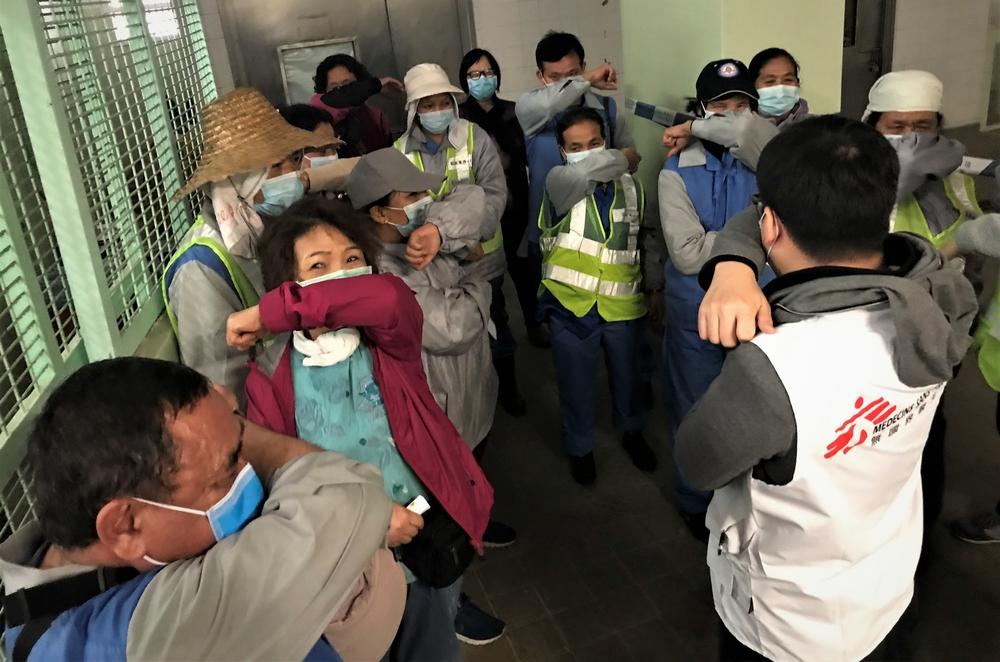“As of 14 February, there were more than 64,000 COVID-19 cases, 99% of which are in China,” says Gert Verdonck, MSF’s Emergency Coordinator for COVID-19. “Medical protective equipment is key. So, we want to contribute to supporting frontline health workers with the specialised protection they need to work safely in an outbreak of this magnitude.”
Weighing 3.5 tonnes, these supplies are being dispatched from MSF Supply in Brussels, Belgium through the Hubei Charity Federation, to reach Wuhan Jinyintan Hospital, one of the hospitals on the forefront of treating patients with COVID-19.
An MSF team in Hong Kong opened a project at the end of January focusing on health education for vulnerable people. Community engagement is a crucial activity of any outbreak response and in Hong Kong, this focuses on groups who are less likely to have access to important medical information, such as the socio-economically disadvantaged. The team is also targeting those who are more vulnerable to developing severe disease if they are infected, such as the elderly.
“Our teams have already conducted face-to-face sessions with street cleaners, refugees and asylum seekers and the visually impaired in recent weeks,” says Karin Huster, who is in charge of MSF’s project in Hong Kong. “We share up-to-date, evidence-based medical information, but perhaps even more crucially, we’re there to listen and answer the many questions that this new disease has generated. Fear can often spread faster than a virus, so helping people manage their stress and anxiety is a key focus for us.”
In addition, MSF is sending a donation of one tonne of personal protective equipment to the Hong Kong St John Ambulance service to help them carry over until their stocks can be replenished. The staff are transporting high-risk patients, and therefore, it is important to ensure that they have the specialised protection they need to work safely.
Further afield, in other countries where MSF is working, teams are preparing in case of an outbreak of COVID-19. In several countries, predominantly in south and southeast Asia, MSF is in contact with the health authorities and offering support should it be needed. This includes training of health workers on infection prevention and control measures and health education for vulnerable and at-risk groups, similar to MSF’s activities in 2003 during the outbreak of Severe Acute Respiratory Syndrome (SARS), caused by a related type of coronavirus.
